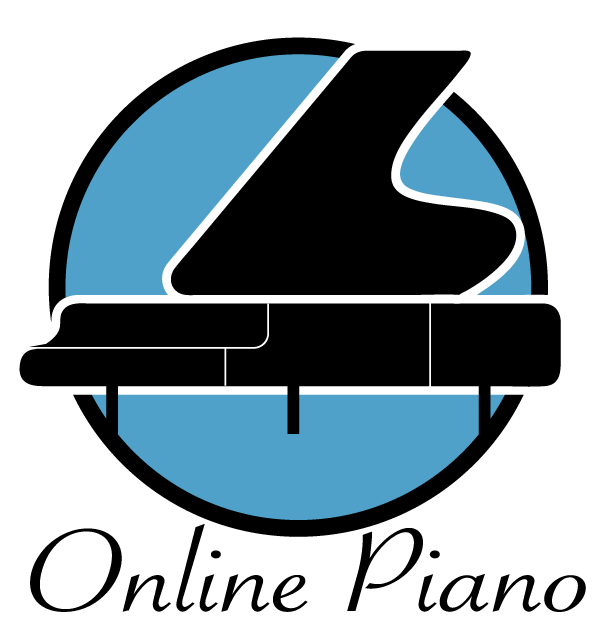STAGE
HIGHLIGHTS
Online Piano classes that cover all the essentials.
Drawing upon 12+ Years of Teaching Experience with Over 150 Students Throughout the Years.
Student Concerts Excerpts

LESSONS
TO BLOW
YOUR MIND
Objective #1
Proper Piano Position
Efficiency in Playing Takes Precedence. Ensuring Correct Posture at the Piano is Essential to Alleviate Tension, Directly and Indirectly Impacting Accuracy, Expression, and Fluidity in Playing.

Objective #4
Chords and Harmony
Understanding Chords, Grasping Tensions, Mastering Various Positions, Inversions, and Voicings – These Elements Forge a Solid Foundation Enabling Proficient Accompaniment of Fellow Musicians.

Objective #7
Conservatory Graded Pieces
A Noteworthy Challenge I've Encountered Over the Years with Students Who Struggle to Progress Lies in the Absence of Adequate Assessment Regarding Appropriate Repertoire Selection. It's Common for Them to Invest Half a Year Into a Beloved Piece That Exceeds Their Current Skill Level. However, This Often Consumes Excessive Time and Energy, Resulting in Acquiring a Beautiful Piece to Perform, Yet Failing to Hone Skills or Cultivate Further Proficiency.
Objective #2
Reading
Notes
Proficiency in Reading Music is Fundamental for Every Musician. Acquire Comprehensive Knowledge of Notation, Bass and Treble Clef, Covering All Essential Aspects.

Objective #5
Music
Thoery
Exploring Music Terminology, Diverse Styles, and Music Analysis Unveils Profound Layers Beyond Surface Piano Proficiency. A Profound Grasp of Music Fosters Enhanced and Impactful Performance.

Objective #8
Rock/pop/ etc. songs
Exploring Varied and Liberating Musical Styles Aligned with Each Student's Preferences and Aspirations for Piano Mastery.

Objective #3
First
Sight-Exercises
Simultaneously Reading Notes and Playing Your Instrument Requires Patience. Our Approach Begins with Foundational Exercises to Cultivate Reflexes Enabling this Skill. These Exercises Gradually Progress into Classical Music Repertoire.

Objective #6
Hearing Exercises
Engage in Exercises Tailored to Discern Various Chords, Scales, and Fundamental Elements, Enhancing Your Musical Comprehension.

Conclusion
Proven Method
Numerous Students Have Successfully Embraced This Approach, Garnering Remarkable Outcomes. A Daily Dedication of 15-20 Minutes for Novices and 1 Hour or More for Intermediate and Advanced Learners is Encouraged. Our Curated Material and Expert Guidance Substantially Streamline Practice Time, Emphasizing Intelligent Practice over Exerting Extra Effort.

Bio
Music Composer
Holder of a Music Composition Degree from Trinity College of Music
His music has been interpreted in important forums in Mexico like:
-Palacio de Bellas Artes
-Museo Nacional del Arte
-Estudios Churubusco
-Centro Nacional del Arte
Masterclasses:
Enrico Chapela - Orchestration
Tomas Barreiro - Composition 2 years
Victor Rasgado - Composition 2 years
Ignacio Baca Lobera - Composition Workshop
Juan Trigos - Composition Workshop
Carlos Sanchez - Composition Workshop
Piano
Received Piano Instruction from Various Accomplished Teachers, Including:
-Mauricio Nader
-Maria Antonieta Lozano
-Raúl de la Mora

MIGUEL ANGEL
GALICIA R.
Media
Highlights
Live Concerts Excerpts
Live from the National Museum of Art Mexico City
Live from the National Museum of Art Mexico City

Live from "Sala Silvestre Revueltas" Mexico City
Live from "Centro Nacional de las Artes Aula Manga II" Mexico City

FREE 30 MIN CLASS
WANT TO TRY AN ONLINE CLASS FREE?
ARE ONLINE PIANO LESSONS RIGHT FOR ME OR MY SON/DAUGHTER?
WANT TO TRY AN ONLINE CLASS FOR FREE?
Experience a Complimentary 30-Minute Trial Session, Delve into the Intricacies of Our Online Piano Classes and Uncover the Learning Experience Firsthand.
Online lessons differ significantly from in-person sessions, catering to a distinct learning style. While it may not suit everyone, independent learners tend to derive the greatest benefit from this format.
ARE ONLINE PIANO LESSONS RIGHT FOR ME OR MY SON/DAUGHTER?
Frequently Asked Questions
1. Are the lessons for seasoned players? Whom are the lessons directed to?
Our lessons address a diverse audience, accommodating those interested in beginning from scratch, progressing to intermediate levels, and even reaching advanced stages. Students span a wide range of ages, including 5-year-olds (with the stipulation that students aged 5-8 must be accompanied by an adult unless otherwise directed) and individuals of practically any age.
2. Can I learn piano if I'm "older"?
While there exists an optimal age for aspiring pianists aiming for mastery, individuals with the goal of playing melodies proficiently and attaining a commendable piano skill level need not be deterred by starting at a later stage. Recent research has illuminated that brain plasticity diminishes with age, yet significant progress remains attainable. The potential for acquiring piano proficiency through diligent practice and discipline is accessible to all, regardless of age. Consistent practice significantly enhances brain plasticity, particularly among senior learners, serving as a valuable regimen for memory enhancement and refining motor coordination.
3. How long will it take for me or my son to play?
Mastery of piano playing requires a dedicated investment of time. Basic melodies can be played within the initial month, while songs involving chords, such as those by the Beatles, are typically achievable within 2-3 months. The journey progresses to classical piano compositions around the 5-month mark. These are general timelines; however, diligent and consistent practice can significantly expedite the learning process.
4. What is the best age to start playing the piano?
Commencing piano instruction between the ages of 6 and 10 is highly advantageous, particularly when aspiring for professional proficiency. However, achieving a commendable skill level is attainable at any age, with no specific age preference.
5. Do I need a Piano or Keyboard to practice?
Yes, it's very important to own your own keyboard or piano in order to improve your playing. Practice makes perfect and daily practice is expected in order to see progress, even if it's only 15-20 min. Some students ask what keyboard they need to begin with.For younger learners, investing heavily in an initial keyboard is unnecessary. I suggest opting for an affordable option in the first year to gauge the child's interest and natural affinity for music. This initial phase is not about talent, but rather the capacity to sustain interest and enjoyment in playing. After a year of engagement, if the student demonstrates sustained motivation, parents can consider a more substantial investment tailored to their budget, available space, adaptability, and the student's individual progress. For beginners, Yamaha or Casio entry-level keyboards are suitable to commence the journey
6. Do I need to buy material?
Most of the material will be provided, but it is recommended to buy some books.
Payments
We will be utilizing Paypal as our payment platform for the classes. An invoice will be sent through the application to cover the classes for the month. Typically, this will be done at the beginning of the month to ensure all classes are covered in advance. Prior to the start of the month, please inform me of any classes that you will be unable to attend so that they may be removed from the calendar and not charged.
In the event that you need to cancel a class, please do so at least one day in advance. The canceled class will be credited to the following month, and deducted from the next payment cycle. Unfortunately, same-day cancellations are not eligible for reimbursement. As I reserve that time slot and plan my day accordingly, I am unable to make up the class or offer it to someone else who may wish to have an additional session.
Please note that the first month's payment process may differ from the subsequent months. During the first month, most lessons will be taken and the invoice will be sent one to two weeks before the end of the month. This is to allow individuals who may be unfamiliar with our system and our sessions to review and ensure that they are fully comfortable with the lessons.
Devices need and Camera
Please note that to view our lessons and to be able to see the Online Piano, it is necessary to have a computer or iPad available for viewing, enabling the student to follow instructions. Additionally, it is important to position either the computer or an extra cell phone in a way that provides a complete view of your keyboard and hands during the video call. Here is a picture to help illustrate the ideal positioning: (It's not mandatory to have 2 devices, but it will certainly be beneficial for our sessions.)



